The grinding noise that occurs while driving a car can be quite bothersome and annoying. These noises can be the alarm that your car is not in a good state and immediate fixes are required.
So, how can you diagnose and fix these grinding noises when driving?
First, you need to start the vehicle and inspect the engine parts. After that, inspect the brakes and the wheel bearing.
You may also need to give a run down to the transmission. With these diagnoses, you must implement the most effective fixes to seal these noises once and for all!
Want to know how to tackle these grinding noises? If yes, then this article is your ultimate guide.
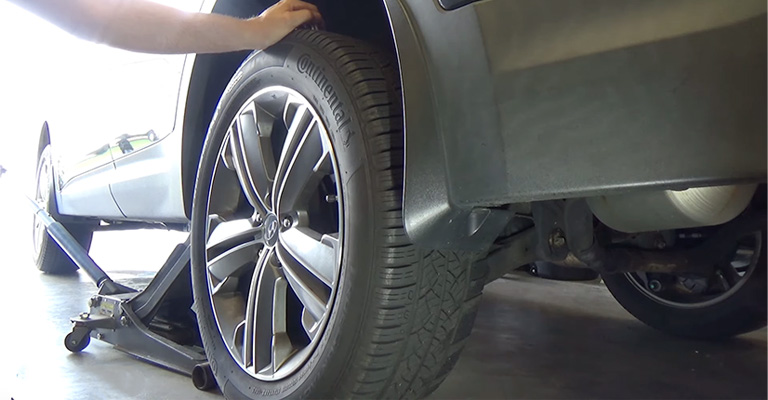
How Do I Diagnose the Grinding Noise of My Car?
Many people aren’t aware of how to diagnose this issue properly, so they deteriorate the condition even more. So, here we have got the diagnosis steps in detail.
Start the Vehicle
First, you need to restart your vehicle to see if it makes any noise. See if the car starts making noise instantly or takes some time.
You would likely see your car making noise when you start driving. Ensure you try on different speeds, like going from a normal to a faster acceleration.
This helps you to understand the change of the grinding noise with the level of speed.
Inspect the Engine Compartments

You may already know that the grinding noise is coming from the engine. However, you now have to locate the exact position if you want to diagnose this.
This could come from the alternator, water pump, or power steering pump. If you don’t know how they look, you can take help from the user’s manual.
Remember, this step is crucial, so be extra cautious when dealing with it.
Once you detect which part of the engine the noise is coming from, you must immediately work on it.
Experts’ Note: You must test a few times to be certain. If you mistake another part instead of the actual one, you are not resolving the issue.
Inspect the Brakes
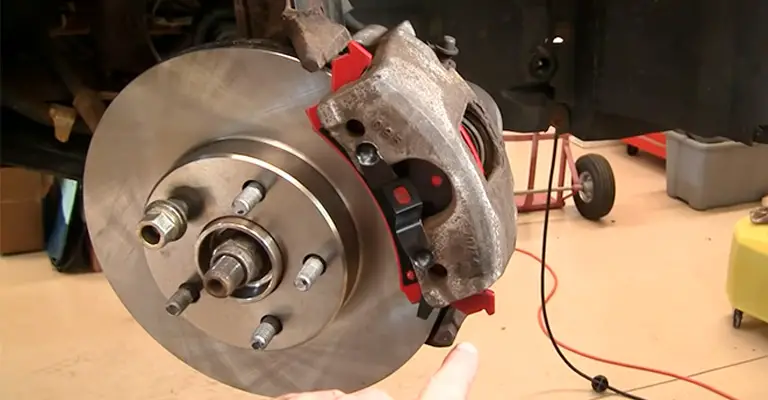
Grinding noises may sometimes result due to faulty brakes. To understand this, you need to start your car and keep it neutral for a few minutes.
See if there is any noise. Then start driving and press the brake pedals.
If you frequently hear the grinding noise while pressing the brakes, then the issue lies within your brake pedals.
Check the Wheel Bearing
If you see all the above parts are alright, you need to inspect the wheel bearing then. To do this, you first need to make a right turn and then make a right.
Now, if you hear the grinding noise, this is your wheel bearing. You may hear the noise making a turn in a particular direction, or it could even be in both directions.
Moreover, you could also hear noises when driving straight. This indicates any pebbles or debris stuck around the wheel bearing.
Give a Run Down on the Transmission
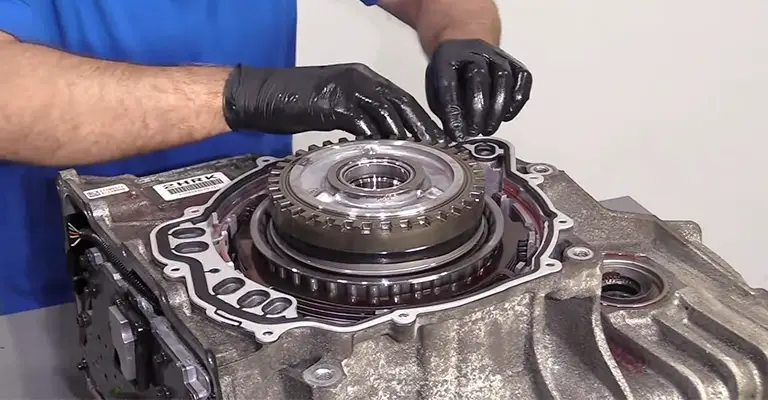
It’s pretty much possible to hear grinding sounds while shifting the gears. In such cases, faulty transmissions are liable for it.
This may also be related to the maladjustment of your clutch. However, it mainly happens for having issues with the transmission.
Inspect Other Small Parts
When driving slowly, you could hear grinding noises too. The most frequent causes include issues with your alternator, bearings, and continual velocity joints.
You may identify the specific location of the problem by looking at each of these components.
Some of these problems have already been discussed above. However, a CV joint problem could also be responsible for a grinding noise while driving at moderate speeds.
The CV joint gives the front wheels torque and appropriate rotation. Therefore, a bad CV joint is to blame if you hear a grinding sound while driving slowly.
You might also notice this grinding sound when turning, which indicates that your CV joint may have worn out.
How Do I Fix the Grinding Noise of My Car?
As you have already come up with the diagnosis, you can understand the problem may be variable. That means anything could be responsible for this.
So, it’s a must to give a thorough fix to this grinding noise problem. Here goes the basic fixes that you can follow.
Clean the Engine Parts
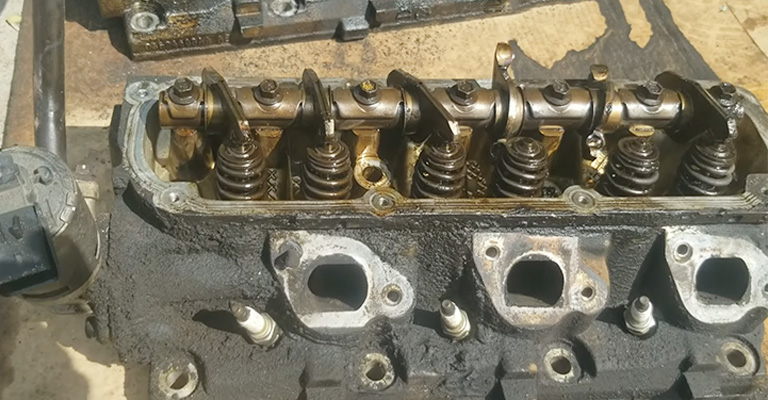
If it is from the engine parts, it is probably the alternator, water pump, or power steering pump.
These parts generally malfunction as they get clogged with time. So, all you need to do is clean off the dirt from these engine parts.
However, these parts may go bad at times too. In that case, you may have to replace the damaged parts.
Fix the Brake System
Just like the engine parts, the brake could also be responsible. So, this is fixable most of the time in case you don’t want to replace it.
The brake tube and pads generally tend to be misplaced. So, once you fix that, grinding sounds won’t be there anymore!
Replace the Wheel Bearing
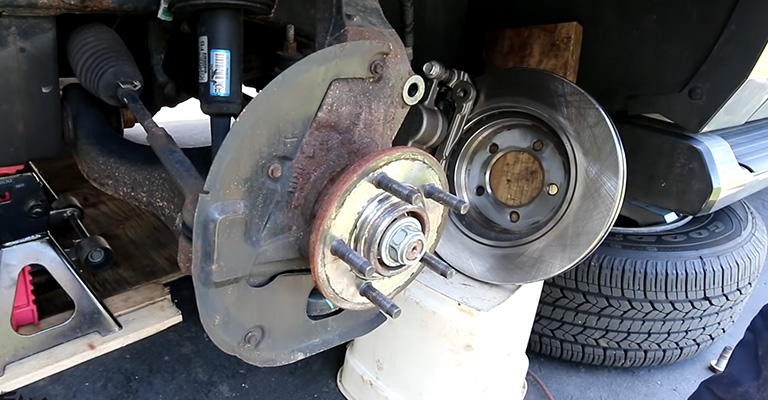
Unlike the above two, a wheel bearing needs to be replaced if there is a problem.
These are generally the small parts of your car which needs replacement after some time.
Fix the Transmission
Problems with the transmission are almost always fixable without any type of replacement. However, this often requires expertise to be looked at.
If you have any experience working on the transmission of automobiles, you can do it too. Other than that, you better take professional help if you are not that expert.
Professional Assistance With the Brake Pads and CV Joints
Lastly, parts like brake pads, CV joints, and others are fixable too. However, the fixes are pretty complicated here!
You can do it only if you have experience in these fields, like fixing the transmission.
We highly recommend that you take the assistance of a professional to get your brake pads and CV joints fixed perfectly.
Frequently Asked Questions
Why does my car stall in neutral?
Your car may stall while being in neutral if you change the gear roughly when you slow down. It is recommended to put the clutch down when you are driving slowly. However, stalling in neutral is not something alarming, but you should still fix this.
Is it a problem if my engine stops while shifting the clutch?
Yes, it is generally a symptom of a problem when your engine stops while shifting the clutch. This mainly happens if you suddenly release your car’s clutch too fast. Due to this, the RPM falls significantly and immediately. This results in stalling of the engine.
How often do I need to get my car to the workshop?
There is no hard and fast rule on taking your car to a workshop. This is because it solely depends on the needs of your car. If you think your car has an issue, you take it to the workshop. Other than that, you may not have to take it even for a year or so.
Can my engine go bad for grinding noises?
The grinding noises of your car would not affect your engine, actually. However, these noises alarm you that your car is having issues. Grinding noises can be a symptom of your engine having probable problems.
Final Words
Now you know about the grinding noise when driving! We believe you can now diagnose the issues and implement the best possible fixes for them.
Grinding noises can initiate with some random noises like screeching or so.
If you ever come up with any noise from your car, look at it. You simply won’t want to worsen the condition.
Leave a Reply